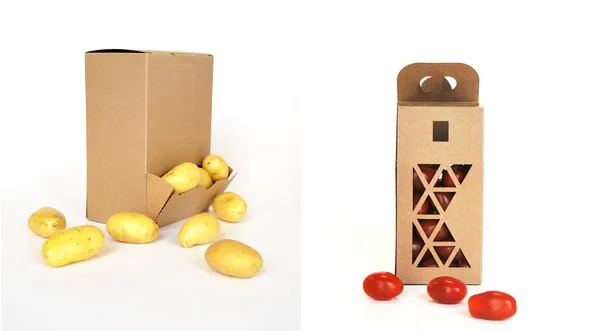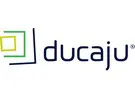The COVID-19 year was very good for the retail sector. And rising sales benefited the packaging industry. "Folded box production for the retail sector has increased tremendously. More and more companies are switching from plastic to cardboard packaging too. That's, of course, great for us," says Veerle D'Haese of DUCAJU.
"Yet it also brings many challenges. Cardboard delivery times are increasing, and prices are climbing." DUCAJU is a Belgian company that produces cardboard packaging for many food products and luxury brands. These include diverse fruit and vegetable products. DUCAJU manufactures packaging for all kinds of products, from strawberries to potatoes.

Why cardboard?
Companies often choose cardboard for two reasons. It improves their products' visibility. And it decreases their impact on the environment. "Cardboard packaging doesn't have to be more expensive than plastic. But you can greatly increase products' visibility and thus boost sales. That's by packaging something in cardboard and dressing it up nicely," explains Veerle.
"That makes it very attractive for people like growers to switch to cardboard. Cardboard also has a much smaller environmental impact than plastic. It's easier to recycle too. Much of the cardboard is produced from waste paper. And the part that comes from new wood is FSC-certified."
Shortage
Raw material prices are skyrocketing. This is also affecting the cardboard market. A Dutch newspaper recently reported that cardboard prices have risen by 30 to sometimes as much as 65%. That, while cardboard prices were relatively low for years. Whether these will return to former levels remains to be seen.
"Our current price agreements with our supplier run from three months to a year. It depends on the type of cardboard. The cost of cardboard will probably eventually stabilize at a higher level," says D’Haese. Online ordering is very popular. That's driving up demand for cardboard from webshops.
The tight waste paper supply is pushing up prices too. However, according to Veerle, this isn't making customers look for alternatives. That's because plastic prices are also climbing. And there are almost no other options besides plastic or cardboard packaging.
For more information:
Veerle D’Haese
DUCAJU
Tel: +32 (0) 473 978 415
Email: veerle.dhaese@ducaju.com
Website: www.ducaju.com
